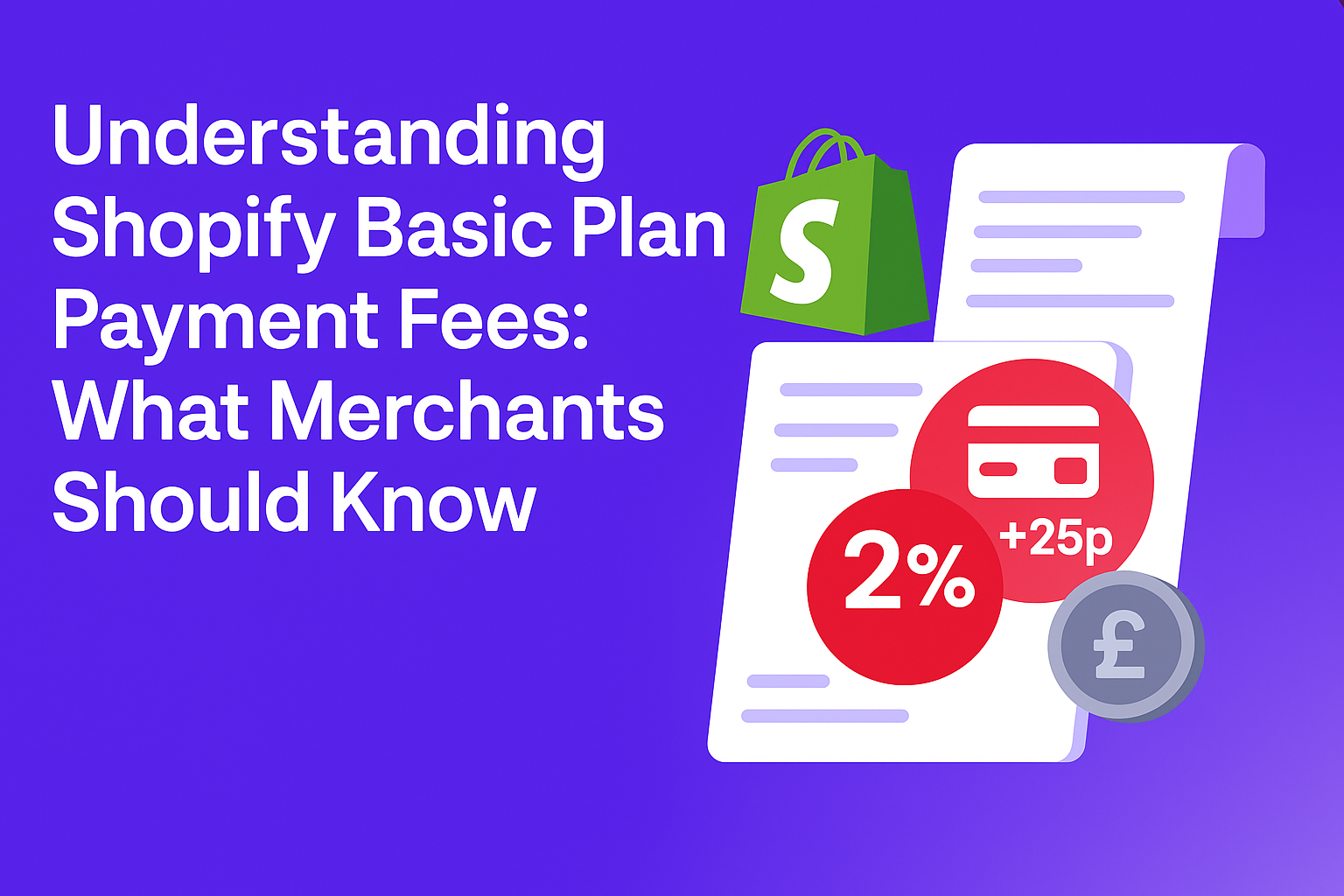Shopify promotes its Basic plan with a transaction fee from 2% + £0.25 per order. At first glance, this seems straightforward. But in practice, actual fees can vary based on order value, payment method, and card type. This article helps merchants understand how payment fees are calculated and why they may see more variation in payouts than expected.
⚠️ Note: This article is informational and based on publicly available data on 27.03.2025 and general merchant observations. It is not affiliated with or endorsed by Shopify.
How Shopify Basic Payment Fees Are Calculated
Under the Basic plan, when a customer makes a purchase, Shopify applies a transaction fee of:
For example:
These fees are deducted before the merchant receives the payout.
- 2% of the order value, plus
- £0.25 flat fee per transaction
For example:
- £100 order = £2.25 in fees (2.25%)
- £20 order = £0.65 in fees (3.25%)
These fees are deducted before the merchant receives the payout.
Why the Real Commission Might Be Higher
While 2% + £0.25 is the base rate, several factors can lead to higher effective commission:
1. Card Type Variability
Different card networks carry different costs. For example, American Express typically has higher processing fees than Visa or Mastercard. As a result, merchants may notice slightly lower net payouts when customers use certain premium cards.
2. Micropayments and Small Orders
The £0.25 flat fee has a stronger impact on lower-value transactions. A £5 order, for example, effectively carries a 7%+ fee, not including any currency conversion or extra gateway fees.
3. Third-Party Payment Gateways
If a store uses an external gateway instead of Shopify Payments, additional transaction fees may apply. These vary by provider and country.
Average Fee Table by Order Value
As seen above, the flat £0.25 fee has a greater proportional impact on small orders, increasing the effective commission far above the advertised 2% rate.
What Merchants Can Do
- Monitor payout summaries: Track your Shopify payouts regularly to understand fee variations based on order size and card type.
- Educate customers on payment options: If possible, offer or incentivize lower-fee options like Pay by Bank (via Open Banking), which can offer instant settlement and lower transaction costs.
- Review plans as you scale: Higher Shopify plans often come with reduced fees. For growing merchants, upgrading may be more cost-effective in the long term.
Final Thoughts
Shopify's Basic plan provides a great entry point for new merchants. However, it's important to go beyond the surface-level 2% + £0.25 fee and consider how real-world factors affect your bottom line. With the right monitoring and alternative options like Pay by Bank, you can take greater control over your store's financial health.
Frequently Asked Questions
Q1: What fees are charged on the Shopify Basic Plan in the UK?
A: Shopify charges 2% of the order value plus £0.25 per transaction. The real effective fee varies depending on order size, card type, and whether you use third-party gateways.
Q2: Why do I see higher transaction costs than the advertised 2%?
A: The £0.25 flat fee disproportionately impacts small orders. For example, a £5 order could result in a 7%+ effective fee. Premium card types like American Express can also raise costs.
Q3: How do different card types affect my payout?
A: Different networks have varying processing fees. American Express typically costs more than Visa or Mastercard, leading to lower net payouts for some orders.
A: Shopify charges 2% of the order value plus £0.25 per transaction. The real effective fee varies depending on order size, card type, and whether you use third-party gateways.
Q2: Why do I see higher transaction costs than the advertised 2%?
A: The £0.25 flat fee disproportionately impacts small orders. For example, a £5 order could result in a 7%+ effective fee. Premium card types like American Express can also raise costs.
Q3: How do different card types affect my payout?
A: Different networks have varying processing fees. American Express typically costs more than Visa or Mastercard, leading to lower net payouts for some orders.







